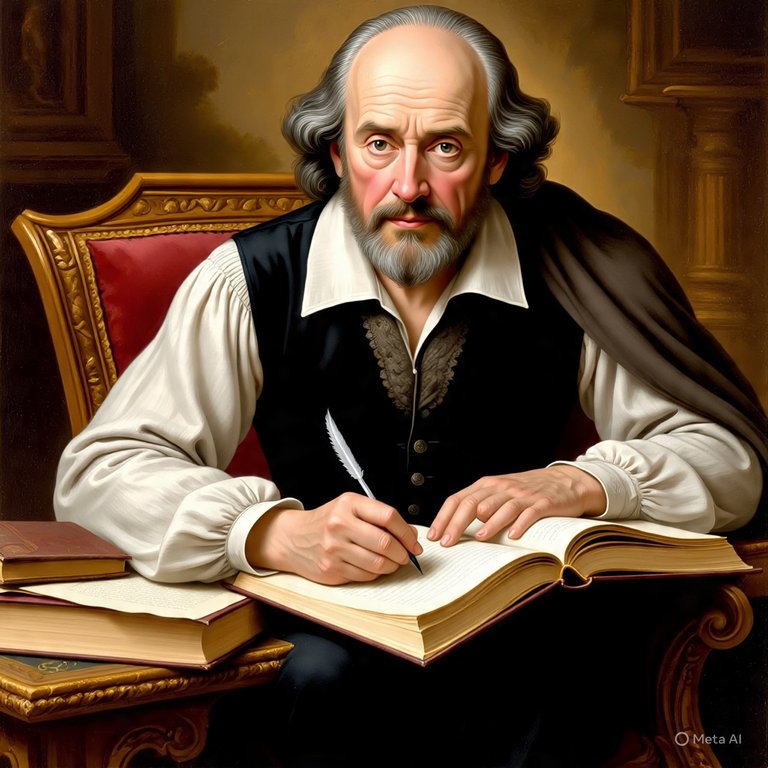
In the past few months, I have been taking a course on Shakespeare. It is one of the recommended courses that we must take in school in partial fulfillment of my BA degree. When my friends heard I'm taking a course titled Shakespeare, they were surprised. Most of them asked how it was possible for a course to be titled Shakespeare. Well, I would have thought so too if I hadn't known better. Basically, as the course title suggests the course is about Shakespeare. We are exploring everything about the greatest writer in the history of English literature, from the era he was born—the Elizabethan Era under the rule of Queen Elizabeth, to the concerns of his era, then moving forward to his works; his plays, sonnets and poems. So, yes! It is indeed a big deal. I find it quite interesting and maybe a bit apprehensive that I'll be taking an exam on this course in the next six days.
A few days ago, while surfing and viewing statuses on WhatsApp, I came across a post from one of my coursemates. She shared her frustrations with reading Shakespeare's works. She mentioned that she struggled to understand the content and couldn't connect with the characters, finding the plot to be distorted. What I found more interesting was that she bluntly stated that "Shakespeare's comedies aren't even funny." When I read that comment, I thought to myself, how many people actually do not like Shakespeare’s comedies because they are “not funny.” More importantly, what is their definition of “comedy”

If I hadn't taken a course on Shakespeare, maybe I would have thought that way, too. But because I know better, it is only right that I clear some misconceptions. First off, it is important to note that in Shakespeare's context, “comedy” does not necessarily mean jokes or laughing out loud. It does not mean that particular literary work will make you burst into laughter. Instead, it means something totally different. In Shakespeare’s context, comedy means a serious story that is told in a light-hearted way, often involving a happy ending. I remember during my high school days, our literature teacher taught us that a comedy ends on a happy
That is totally different from the definition of comedy we have today, right?

To make it easier to understand, consider this analogy. Imagine a writer discussing the impact of corruption and bad governance in society. That is a serious topic, right? Nothing to laugh about there. Now, imagine if this writer handles this topic in a light-hearted way such a way that in the end, he'll touch the necessary points, but not in a vulgar way. All’s Well That Ends Well is a very good example of one of William Shakespeare’s comedies. The play ends on a happy note (which is a very important comedic element): Helena ends up with the man she loves, Bertram. There are humorous moments and clever dialogue. Shakespeare discusses the complexities of social class in a humorous way.
In conclusion, I really can't blame people who say Shakespeare's comedies are not funny. In the actual sense, they are not the type of works that would make you burst out into laughter. So, to better put, William Shakespeare’s comedies fit in perfectly to his definition and context of comedy and also into his era.
Images generated using MetaAi.
Posted Using INLEO


